Existential Insignificance
In which the sh!tter breaks and a transcendental experience unfolds
As the swell rises and falls in the North Pacific, so alternates the mood of the novice blue-water sailor between sheer joy and muffled terror. At times it is benign, peaceful, pleasurable. Dolphins surf the bow wave. Friendly tunas almost voluntarily leap into our poke bowls. Early on, Matt discovers that both beanbags can be daisy-chained to support the abdomen and the legs, forming an open-air womb for sunbathing. At the same time the North Pacific employs a sadistic violinist who always lurks just in the background and maintains a nearly inaudible minor-key score to a horror film waiting to spring to life at any moment. Matt discovers this open-air sunbathing womb as our vessel casually meanders into a stretch of ocean known as the Graveyard of the Pacific.
There are very few places to seek refuge along the unforgiving, exposed lee shore of the Pacific coastline above San Francisco, a five-day sail to the South. Those few safe harbors that do exist along this battered coast are mostly inside of river mouths and accessing them requires crossing a river bar. River bar crossings are real pendejos by any measure. If not crossed at or near slack high tide they can result in capsizing by breaking waves or running aground in the wave troughs. Around 2,000 vessels have met their maker along the first 200-miles of this passage.
While intuition would suggest that staying close to shore and harbor-hopping would be the safest way to reach San Francisco, the reality is decidedly not so. We pointed our bow out to sea and carved an arc southward that would keep us 100-250 miles offshore. In the event of a storm, we could employ any number of storm survival tactics and then carry on—if perhaps mentally broken and scarred for life. As the prior owner put it as he handed over the reins: things may get nasty out there, but rest assured that you will break before the boat does.
“Shitter’s broken,” one crew member cheerfully reported as he emerged from the companionway hatch. “Totally jammed up with toilet paper, it seems,” he said. I wrinkled my forehead and searched the insides of my eyelids for answers. “Toilet paper goes in the trash.”
“You’re not kidding—that thing is down for the count!”
Besides being known for sinking ships, this section of the trip is famous for destroying hardware; accidental gybes, violent rocking, and extreme forces frequently claim blocks, rigging, sails, autopilots, bolts, pins, sheaves, and other critical boating doo dads. Sailboats often limp into San Francisco Bay with shell-shocked crew and a list of the things that broke. Disabled shitter was unexpected, but not so bad—we have two.
I came to see the days as a mental reprieve from the nights. At the end of most night watches I would stumble deliriously downstairs into my cabin, strip off my foulies, and bury myself under a mountain of pillows so that I couldn’t hear anything. My cabin—the master stateroom at the back of the boat—was the loudest, a constant reminder that we were really out there. Closest to the engine, closest to the prop shaft that decided to continuously spin after the extreme motion introduced air into the hydraulic shaft brake. Nearest the autopilot gears that screamed and ratcheted under heavy load in the biggest of seas. The nights put my faith in our boat to the test because I had to sleep. But it was really the evenings that set up the nights to be so ominous.
On several evenings I stood in the cockpit just before sundown and I peered out beyond the railings of our boat and felt the sensation that we were sailing through a watery mountain range. Our hulk of a ship was a child’s toy rising and falling 10 feet from peak to trough every five or six seconds. In the wave basins we were in deep, watery canyons, but seconds later we would rise up and teeter atop a pointed mountaintop, looking down on the watery Himalayas, each monstrosity topped with a crashing white cap. On a few occasions when the waves were particularly large, I looked out at this chaotic crashing mountain scene all around us as the sun settled into the ocean and darkness descended, and I silently asked myself, what are we doing out here? But the faces of the crew were content, confident. Maybe I also looked confident. Did they wonder what in the name of Dios we were doing out here too? To walk away from these crashing mountains and bury oneself in pillows and fall asleep for a few hours at a stretch, one needed faith not only in the boat, but in the crew.
“Hi there, Brad! The floor in the forward shitter’s starting to fill up with water. Seems the gray water pump is broken. Have a good one!” Chuck’s mustache twitched up at the ends as he flashed a well-rested smile and headed out for his watch. I had struggled to stay awake through my midnight-to-three-AM shift, wracked with delirium and thinking only of the soft embrace of my mountain of pillows. But going to bed now would result in our floor and bilge becoming a toxic mess of smelly gray sewage water. I summoned my inner Kerri Strug and instead went to work under the floorboards in the galley as the boat rose, fell, pitched and twisted on repeat. By the red glow of my headlamp, I removed the tricuspid valves from the overboard pump and scraped all the calcified plankton from their surface and then verified that both rubber valves were totally mangled and dead. I used a heat gun and my fingers to gently re-shape the rubber, and then reassembled it. Since rubber is a thermoset, this would be a temporary fix if it worked at all. I turned the pump on, went outside and peered overboard with my headlamp to verify that a meager slug trail of gray sludge was in fact leaving the side of the boat, and then I tumbled into the warm embrace of my pillows like a giant sock filled with pudding.
As the days and nights ticked slowly by, the sense of foreboding faded and the crashing waves became nameless, harmless companions. The fake-it-til-you-make-it confidence found bedrock and began to grow. We hooked six tuna on handlines and managed to land four, which find their way directly from the line to our dinner plates.
At 4:00 AM on the fourth night, 95 miles offshore, Rick and I began on our only shared watch of the trip. Rick emerged from the galley with two mugs of freshly brewed tea and we hunkered down on the cockpit cushions in our foul weather gear. I pulled a blanket over my legs, held my tea close to my face, and stared mindlessly out into the darkness behind the boat. The light from a sliver of moon was just enough to illuminate the crashing white caps all around us and to the horizon. The sound of the ocean was a deep, thunderous cacophony of crashing waves, punctuated occasionally by a strange, hollow-sounding wave. What could cause that?
When Sheena and I first visited Seattle a decade ago, Rick and his wife, Michealene drove their Vanagon out to meet us for tacos. We’ve been friends ever since. Rick and I talked for a long time in the near pitch-black. Being surrounded by the vastness of the ocean at night with such immense energy crashing all around can have the effect of causing one to feel existentially insignificant. But the occasional hollow wave that we kept hearing didn’t quite belong; it also sounded insignificant in comparison to the power of the sea. Suddenly we heard the hollow echo of a wave at the same time that a white plume caught the moonlight.
“There’s a whale out there!” I said, jabbing my finger into the darkness. “It’s following us!”
The idea that the sound could have been a whale was the first thing to cross my mind forty-five minutes earlier. But what would a whale be doing out here in these huge, unforgiving seas?
At once we jumped up and grabbed the stern rail, staring off into the blackness behind the boat. The endless expanse of white caps glowing in the faint moonlight was punctuated every couple of minutes by the whale, rising, exhaling, and diving, just three or four boat lengths behind us.
What happened next could only have been conceived by Dios himself, or by a marine biologist on an acid trip. Our path through the water suddenly brought us into a patch of bioluminescent plankton, which light up in fluorescent shocks of color when disturbed. This caused the white caps surrounding the boat to suddenly become illuminated with each crashing wave. The show was ready to begin, the house lights had come down and the overture had begun. Suddenly and without warning, just one or two boat lengths behind us, a glowing, fluorescent mountain suddenly grew out of the ocean—the whale breaching! The enormous glowing orb rose from the sea, then parted down the middle and cascaded off each side of the whale’s head like two psychedelic waterfalls, and then the grand finale: it exhaled loudly through its blowhole, sending a sparkling cloud into the air where it hung like translucent pixie dust reflecting the moonlight. Rick clasped my arm and we stared breathlessly, unmoving and slack-jawed like two little kids as the warm cloud approached us at a walking pace, engulfed us, and then we passed right through it.
The whale dove and resurfaced a few more times off the port quarter, then made one final dive and left us staring, still wet in the face and speechless. The last image the whale would have seen of us would have been Rick and me clasping each other in utter childish ecstasy and disbelief at the stern of our boat just above the name of our floating home: Impossible. It sure felt like it.


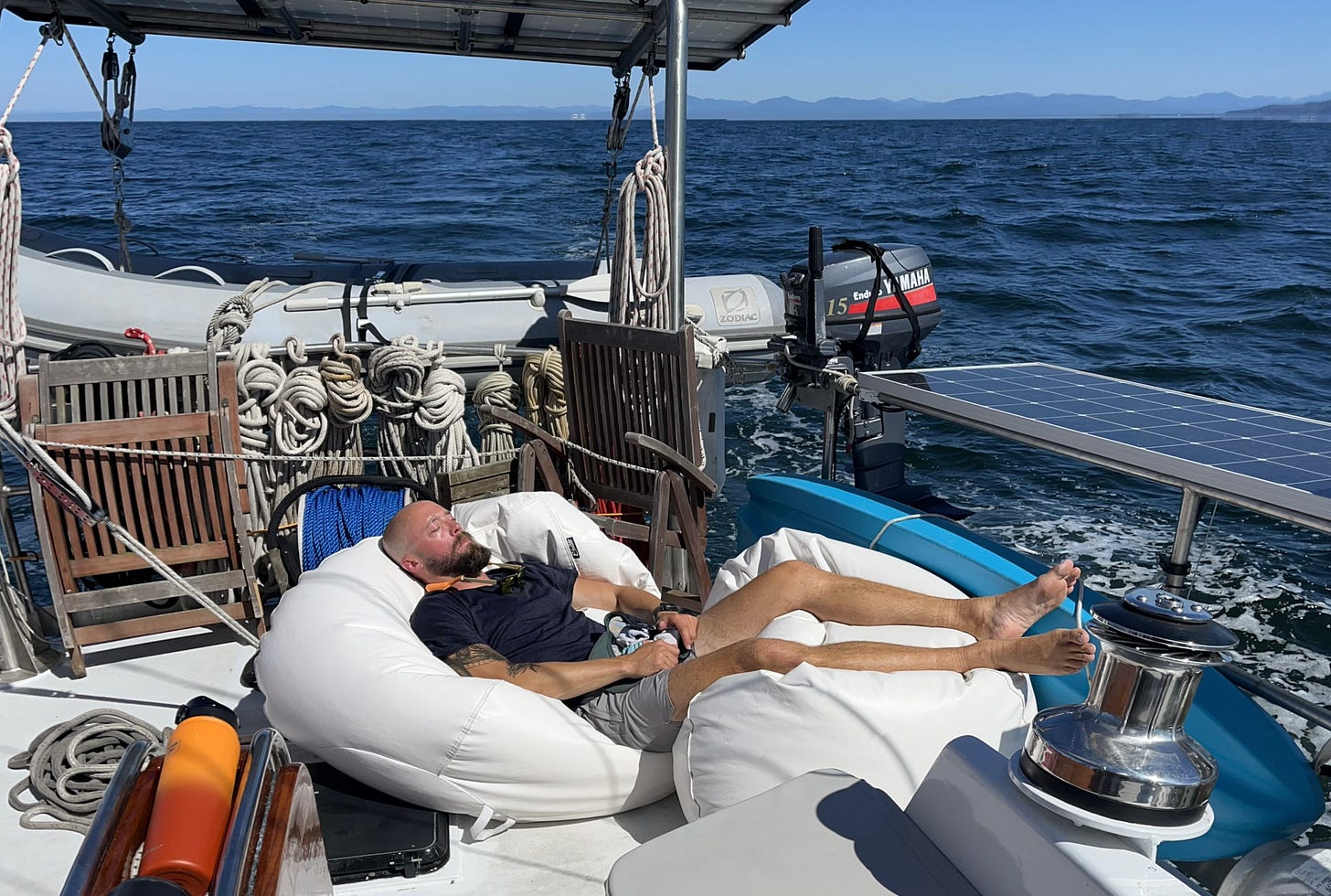
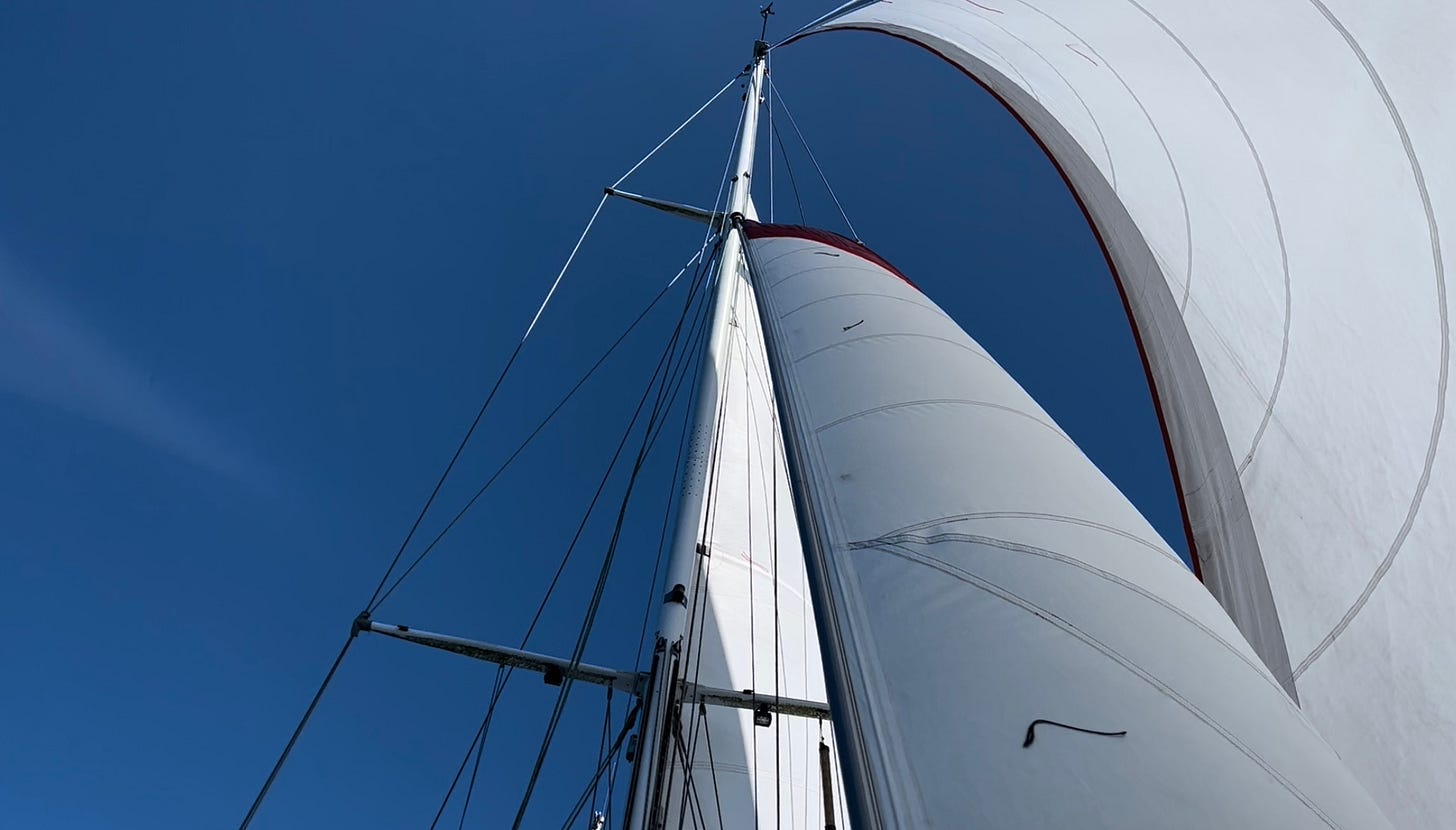
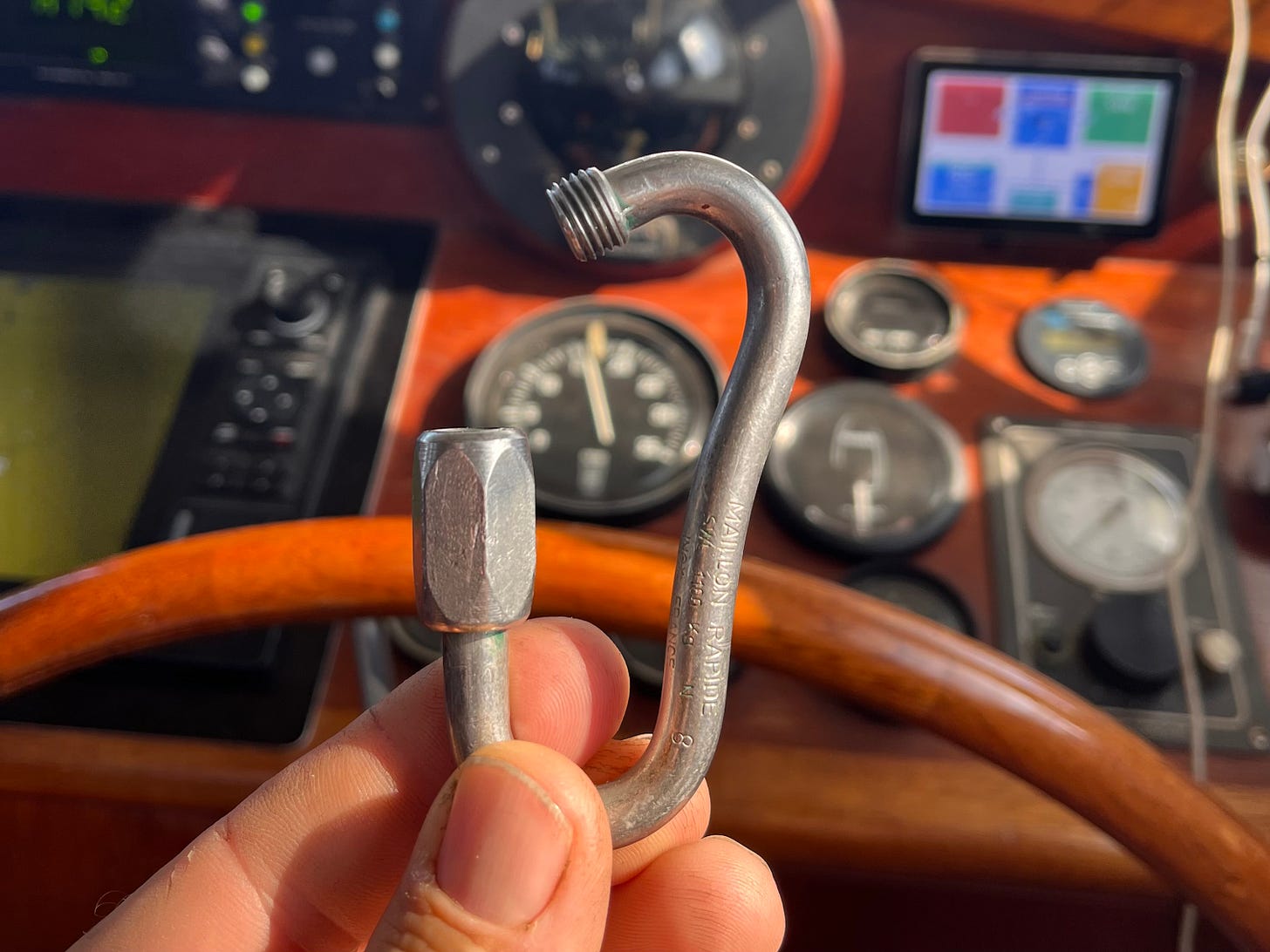
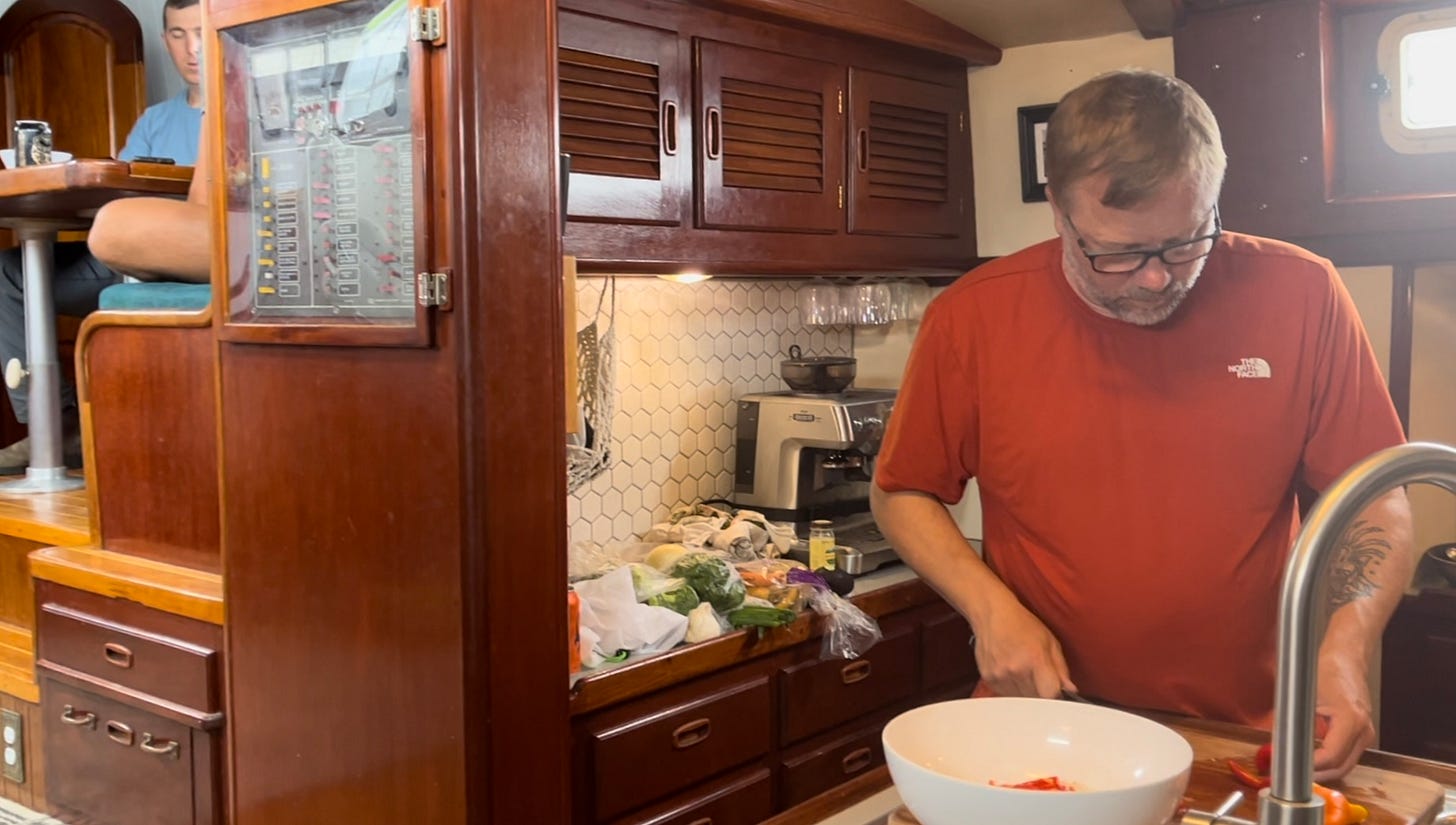
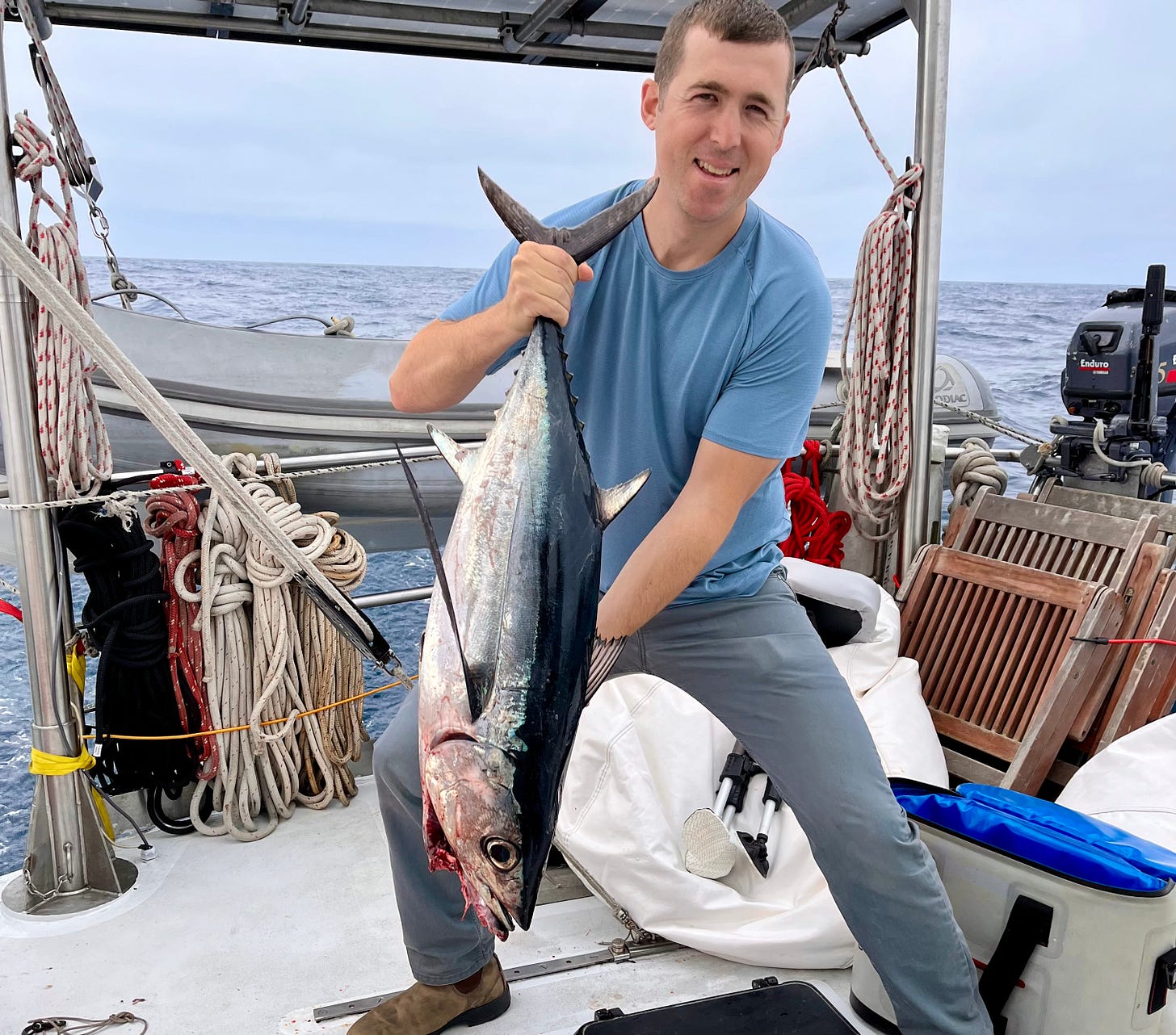
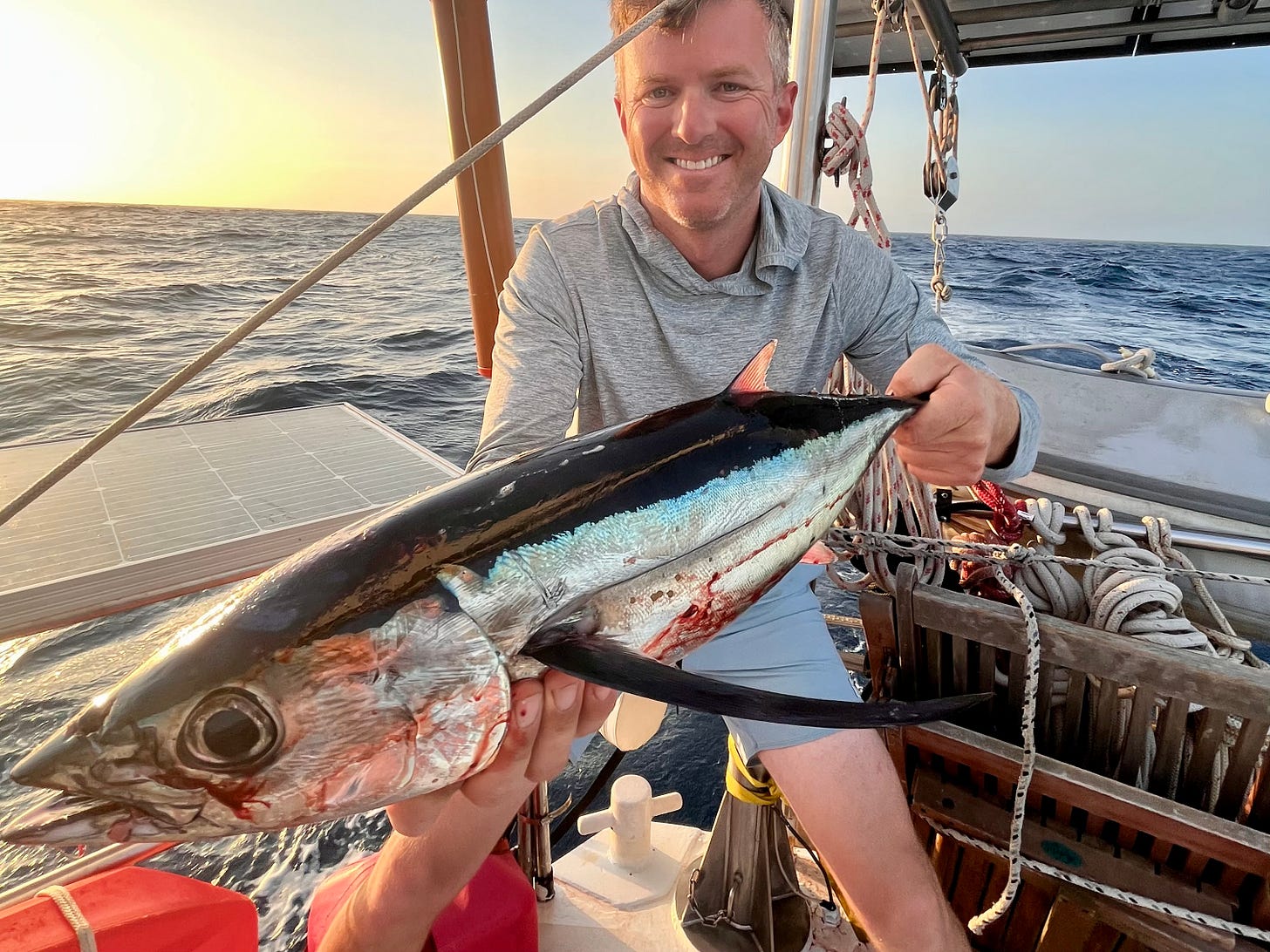

I’m with Wayne. Followed your adventures as my wife and I rebuilt a van, drove it everywhere, and eventually settled back in the northwest. It makes me really happy to know that wanderers will wander, regardless of how entrenched they get. Fair winds.
- Aaron
What a fantastic experience! Go Brad go! Thank you for publishing these along y’all’s journey.